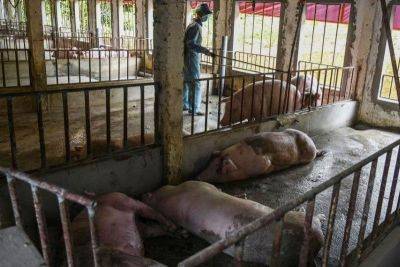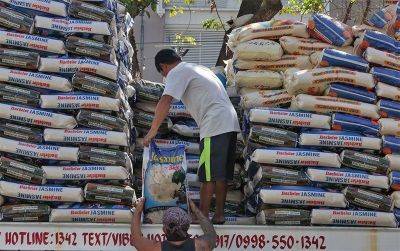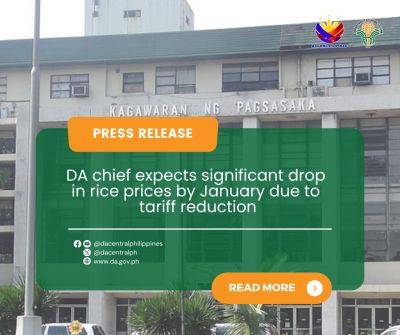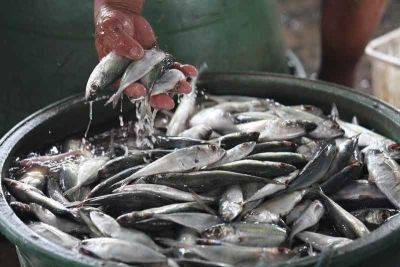DA: Rice importers should utilize permits within 2 months
MANILA, Philippines — Agriculture Secretary Francisco Tiu Laurel Jr. has ordered rice importers to utilize the Sanitary and Phytosanitary Import Clearance (SPSIC) issued to them by the Bureau of Plant Industry (BPI) within 60 days, warning that sanctions await traders who fail to comply.
Tiu Laurel issued Memorandum Circular 35, aiming to ensure food security in the country and protect the welfare of local farmers.
“The actual product/consignment must be shipped out within 60 days from the date the SPSIC is issued, regardless of the country of origin. This shipment is still subject to plant quarantine procedures at the port of entry upon arrival,” Tiu Laurel said in the circular.
He made the directive amid reports that rice importers failed to use the import permits months after BPI issued the SPSIC.
“The Department of Agriculture (DA) recognizes the need to ensure enough supply and buffer stock to ensure availability, accessibility and affordability of safe rice,” Tiu Laurel said.
He added that rice importers should fully utilize their applied SPSIC.
“Low or no utilization of SPSICs may result in sanctions and penalties in accordance with the guidelines as this can create discrepancies in the forecasting being done in relation to the availability of rice supply,” Tiu Laurel added.
From January to Aug. 22, at least 2.7 million metric tons (MT) of imported rice have arrived in the country using 3,723 SPSICs.
In August, at least 208,949 MT of imported rice entered the country while 167,403 MT arrived in July.
Executive Order 62 allowing a 15 percent tariff on imported rice took effect on July 7.
Based on the monitoring of DA in Metro Manila markets, the retail price of local rice remained lower compared to imported grains despite almost two months of the implementation of EO 62 on a lower tariff.
The National Economic and Development Authority has promised that the retail price of imported rice will go down by at least P7 per kilo with the implementation of EO 62 but this has yet to be felt by consumers.
Meanwhile, the DA has lifted the ban on the importation of poultry products from California and South Dakota, United States after the bird flu outbreak in the two







